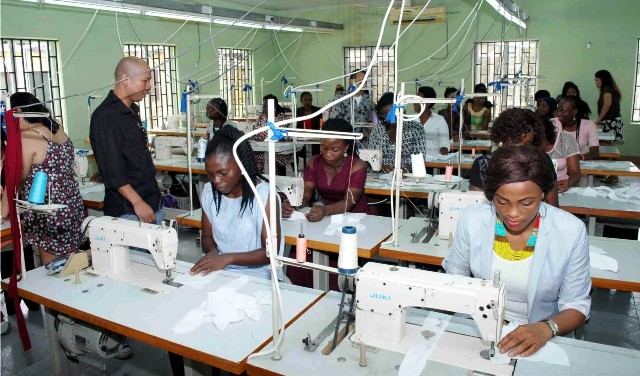Business
‘Allow NERC Perform Its Mandate Without Interference’

The Bureau of Public Enterprises (BPE) says for privatisation of power to work effectively, the Nigerian Electricity Regulatory Commission (NERC) must be allowed to perform its mandate without interference.
Mr Alex Okoh, the Head, Public Communications made this known in a statement in Abuja .
NERC is the body saddled with the responsibility of regulating the power sector.
He said that the Acting Director General, Dr Vincent Akpotaire, made the appeal at a two-day stakeholder’s interactive dialogue/workshop organised by the joint committees of the National Assembly on Power.
Akpotaire said that NERC must be allowed to fix tariffs in line with the Electric Power Sector Reform Act (EPSRA) without interference from any quarters.
He added that if the tariffs were considered high, the government could decide to mitigate the effects by taking up a percentage of the tariffs instead of outright cancellation.
He cautioned against the blame game in the power sector and appealed to the executive and legislative arms of government and other stakeholders to come together to find solutions to the sector’s challenges.
Akpotaire explained why the Federal Government was being asked to subsidise the Nigeria Electric Supply Industry (NESI).
“The loss levels at the point of privatisation of the power sector, that is the Aggregate Technical, Commercial and Collection (ATC &C) loss of Nigeria was about 50 per cent on the average.
“This could not be fully passed to consumers immediately, to avoid rate shock and consumer rebellion.’’
He also explained why the Central Bank of Nigeria (CBN) gave a loan of N213 billion to the privatised power companies.
“The Multi-Year Tariff Order 2 (2012) that was put in place when investors took over on Nov. 1, 2013, had assumed AT & C loss level of 25 per cent.
“The agreements signed with the investors gave NERC and the Distribution Companies (DISCOs) one year to determine the true ATC and C loss levels which were subsequently found to be about 50 per cent on the average. “Based on the new ATC and C loss levels, a new tariff was issued by NERC with effect from February 2015, but the shortfall that accumulated because of the wrongly assumed ATC and C of 25 per cent from Nov. 1, 2013 to Dec. 31, 2014 amounted to N213 billion.
“Consumers were liable to pay the N213 billion immediately, but the CBN intervention by way of a loan to the DISCOs, enabled NERC to spread the recovery of the money from the consumers over a 10 year period.’’
He also said that the core investors in the DISCOs were not investing heavily in line with the covenants they signed with the government.
This, he said was because the transaction structure compelled investors to raise money and pay for their 60 per cent equity in DISCOs using their own balance sheet.
He added that upon take over, the investors were expected to leverage on the acquired companies’ clean balance sheets to raise additional funds for investments.
“However, financial institutions have refused to lend money to the DISCOs until a cost reflective tariff is approved in line with the agreements and the CBN loan to the industry removed from the books of the DISCOs.’’
Akpotaire said that though the Federal Government owned 40 per cent of the DISCOs, it was not part of the management because it was not funding its shares on the boards.
He said that the performance agreement executed with investors had assigned operational risks to investors.
“The performance agreement provides that a core investor who fails to achieve agreed targets stands the risk of losing his/her equity at the payment of one dollar by the Federal Government.”
He also said that the BPE was on the boards of the power companies since 1988 when the Technical Committee on Privatisation and Commercialisation (TCPC), the agency BPE replaced,was established.
He added that BPE had always represented the Federal Government on the board of any company undergoing reform and privatisation.
“This is on the grounds that it makes it possible for the BPE to have access to all the information it requires to carry out its statutory duties of reform and privatisation.
Transport
Automated Points Concession : FAAN Workers Gave 72hrs To Revise Decisions In PH

Transport
FAAN Announces Pick-Up Points for Go-Cashless Cards

Business
Fidelity Bank To Empower Women With Sustainable Entrepreneurship Skills, HAP2.0
-
Politics2 days ago
2027: NIGERIANS FAULT INEC ON DIGITAL MEMBERSHIP REGISTER DIRECTIVE
-

 Environment2 days ago
Environment2 days agoLAWMA Director Says Sweeping Reforms Have Improved Waste Collection
-
Politics2 days ago
LP Crisis: Ex-NWC Member Dumps Dumps Abure Faction
-

 Politics2 days ago
Politics2 days agoUmahi Dismisses Allegations On Social Media, Insists On Projects Delivery
-

 Sports2 days ago
Sports2 days agoAbia Not Sure To Secure continental Ticket
-
Sports2 days ago
La Liga: Yamal Records First Career Hat-trick
-
Politics2 days ago
IT’S A LIE, G-5 GOVS DIDN’T WIN ELECTION FOR TINUBU – SOWUNMI
-

 Sports2 days ago
Sports2 days agoCity Survive Leeds’ Challenge At Elland Road

